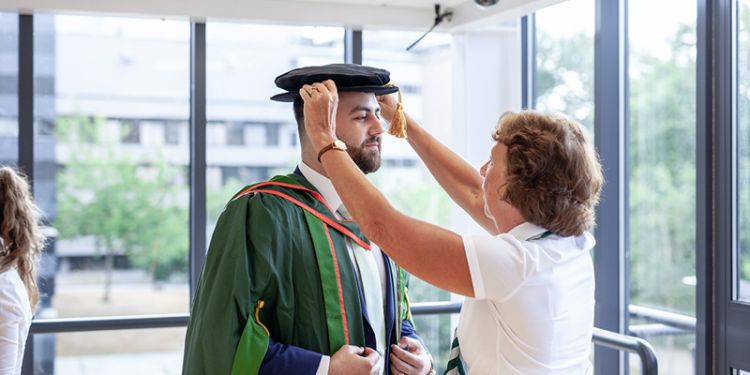Doctor of Philosophy (PhD)

Studying for a PhD allows you to explore an aspect of media and communication that fascinates you in great depth, and make a meaningful contribution to your chosen field. It’s a necessary qualification if you’re aspiring to have a career in academia.
Duration
If you research full-time, you'll usually complete your PhD in three years. Part-time research degrees are normally completed in five years.
Structure
Your first year
For the first 12 months (or 18 months if you're researching part-time), you'll be enrolled as a provisional postgraduate researcher and you’ll have regular meetings to check your progress and to make sure you're developing the right skills for your research. You'll produce a detailed research proposal, establish a feasible timescale for your project and write a literature review. This work is submitted to a panel of examiners who will assess it and provide you with feedback and advice on the progress of your research.
This process is called 'transfer' and is an important means of monitoring the progress of your work and assessing whether your proposal has enough weight to be accurately explored through a PhD.
Following a successful transfer
You'll enrol as a full postgraduate researcher, complete your research and write your thesis.
Your thesis
You'll complete an extensive independent research project, using your findings to produce a thesis of around 100,000 words. Throughout, you'll receive guidance from supervisors who are active researchers in your area of interest.
Your thesis should make an original contribution to knowledge through, for example, gathering and analysing new facts or by interpreting existing information in an important new way.
The degree of Doctor of Philosophy is awarded on the basis of this thesis, and your viva voce, where you’ll present and discuss the rationale, methods and findings of your original study with an examining panel.
Practice-led research
We welcome PhD applications that include a practical element, especially in the areas of filmmaking, photography, screenwriting, immersive and interactive storytelling, digital performance and production, and community co-production.
For a practice-led PhD, you’ll produce a body of work which demonstrates an original contribution to knowledge and scholarship. This will comprise a substantial creative practice produced in pursuit of the degree, displaying critical understanding and being worthy of public presentation or publication.
You’ll also produce a written submission of 15,000 to 50,000 words. This will provide an exploration of the research question(s) and will indicate how the research is embodied in and through the practice.
Andrew Morris PhD Media and Communication
Choose a research topic that genuinely excites you. This will be your life for the next three years. Look into which members of staff have knowledge in the area you intend to research and send them an email briefly outlining your idea – go from there!View Profile

